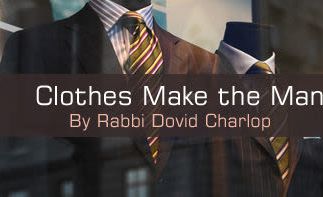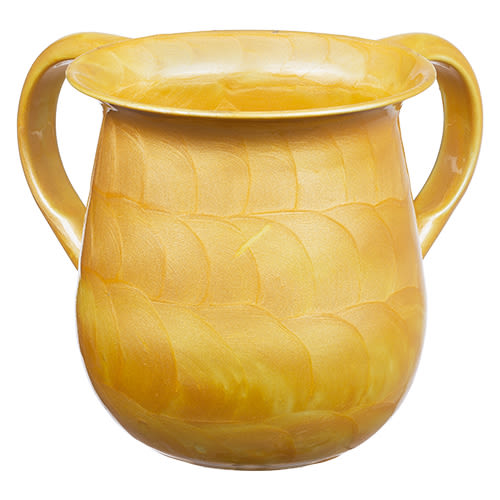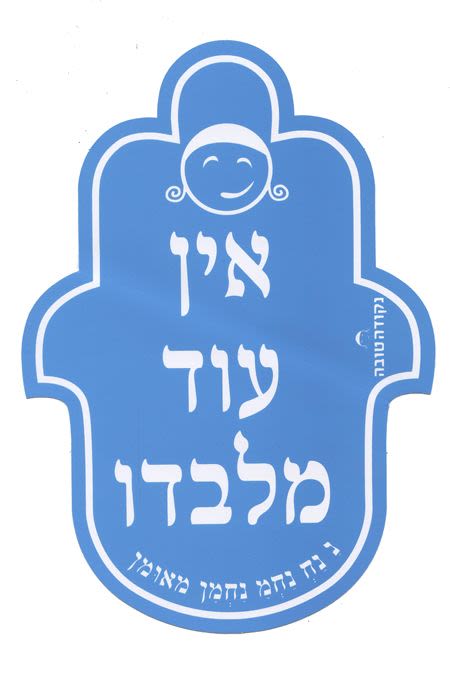
Vayeitzei: A Taste of His Own Cooking
Parshat Vayetze: The "pupil" Leah rebuked Jacob when being accused of deceitfulness. She claimed that she learned the lesson of "grabbing" holiness from Jacob himself...

Parshat Vayetze
Certain parts of the Chumash (Five Books of Moses) seem more difficult to grasp than others. This Parsha we learn about Jacob's marriages to Rachel and Leah and the subsequent birth of almost all of Jacob's sons. Without delving into the halachic (legal) aspects of how Jacob married two sisters, the question practically jumps off the pages of the Chumash, why did Jacob marry two sisters? Undoubtedly everything has hidden meaning and is part of the Divine plan, especially the birth and growth of the Jewish nation. Even so, is there an explanation or a way to understand the reason why Jacob married two sisters?
Last week we mentioned the story of how Jacob took the blessings for physical wealth that Isaac had initially intended for Esau. We explained that Rebecca decided, and Divine Providence agreed, that the benefits of the blessings would have been misdirected and misused by Esau. Jacob would now have the dual responsibility of bringing G-dliness into the world not only on a spiritual plain but on a physical one as well.
Let's try to gain a different perspective on the same story. The Midrash tells us a fascinating thing about Rachel and Leah, Jacob's two wives. Initially, Jacob was supposed to marry Rachel and Leah was originally destined to marry Esau. Apparently Rachel was better suited  to help Jacob in his spiritual pursuits while Leah would have helped Esau with his job of conquering and using this world to support Jacob. However, as we saw, Esau became so corrupt and incapable of properly using this world, Jacob had to step into his place. Where did this leave Leah? Was she still destined to marry Esau?
to help Jacob in his spiritual pursuits while Leah would have helped Esau with his job of conquering and using this world to support Jacob. However, as we saw, Esau became so corrupt and incapable of properly using this world, Jacob had to step into his place. Where did this leave Leah? Was she still destined to marry Esau?
It would appear that, in fact, that's what might have happened if not for her extraordinary prayers that changed her fate and, subsequently, the fate of the Jewish people. The verse says that Leah's eyes were tender and Rashi explains that her eyes were effected from the abundance of tears she shed to avoid marrying Esau. Her cries pierced the heavens and she merited marrying Jacob instead. It would appear that since Jacob "took over" Esau's job, he also merited marrying Leah in place of Esau. Leah had all the necessary qualities to marry the person who would do the job Esau was supposed to do. Initially she and everyone else thought the one to do Esau's job was Esau but ultimately the job was taken over by Jacob. Jacob married two sisters who had the abilities to support the two husbands that would build nations dedicated to spiritual and physical holiness and elevation. They both married Jacob because in a certain way, Jacob became like two people, himself and Esau combined.
However, there would appear to be another important lesson in Jacob's marrying Leah. The Torah relates how Jacob hoped to marry Rachel but was well aware that his father-in-law Laban would attempt to switch Leah for Rachel (which he did). In order to insure he was marrying Rachel, Jacob talked to the woman he thought was Rachel throughout their first night of marriage. However Leah, who wanted to ensure her marriage to Jacob, continually pretended she was Rachel. In the morning Jacob realized that he had been fooled not only by Laban but also by Leah. The Midrash tells us of a sharp dialogue between Jacob and Leah.
That very morning he said to her "deceitful woman, daughter of a deceitful person (Laban). All last night I called you Rachel and you answered as if you were her". Leah responded "Is there a teacher without pupils? Isn't this what happened when your father was giving you the blessings and you responded as if you were Esau?".
This sharp dialogue sounds like a harsh accusation and defense but I think there is much more to the message of this Midrash.
When Isaac was planning on giving Esau the blessings, Rivka and Jacob understood that such a scenario would be catastrophic. If Esau had received the blessings, untold harm would have resulted. Jacob realized he had no choice but to pretend to be his brother, not at all because he wanted to, but because he understood the possibly tragic outcome of not doing so. From here the "teacher" Jacob taught there are times when being deceitful may be necessary in order to "grab" the holiness and blessing that might be misdirected and to bring it to where it belongs. Although this sort of "trickery" can be dangerous (and needs halachic parameters, which is not the scope of this article), there are situations that mandate "kidnapping" holiness from an otherwise undeserving or even dangerous place to assure that it be used properly.
The "pupil" Leah rebuked Jacob when being accused of deceitfulness. She claimed that she learned the lesson of "grabbing" holiness from Jacob himself. She understood that if holiness can be taken from under the nose of an Esau because of a possible catastrophe, then she had every right to ensure her marriage to Jacob as well. If she hadn't, she might have been taken in marriage to Esau. What greater tragedy could there have been? If deceit was necessary to bring holiness to the correct address, surely a person whose entire being was dedicated to holiness had the right to be deceitful.
So in the end, Jacob married two wives who represented two roads to serving Hashem. One was the marriage to Rachel who was Jacob's intended mate, who didn't have to do anything deceitful to become Jacob's wife. The second was Leah, who learned from Jacob and taught the future generations the need to sometimes use unconventional means to arrive at a place of holiness. Jacob married both sisters and taught us that both approaches are essential (of course when used in the correct way).
May we merit to learn and properly apply the two approaches represented by Rachel and Leah and to "grab" all possible opportunities for holiness in our service of Hashem.












Tell us what you think!
Thank you for your comment!
It will be published after approval by the Editor.